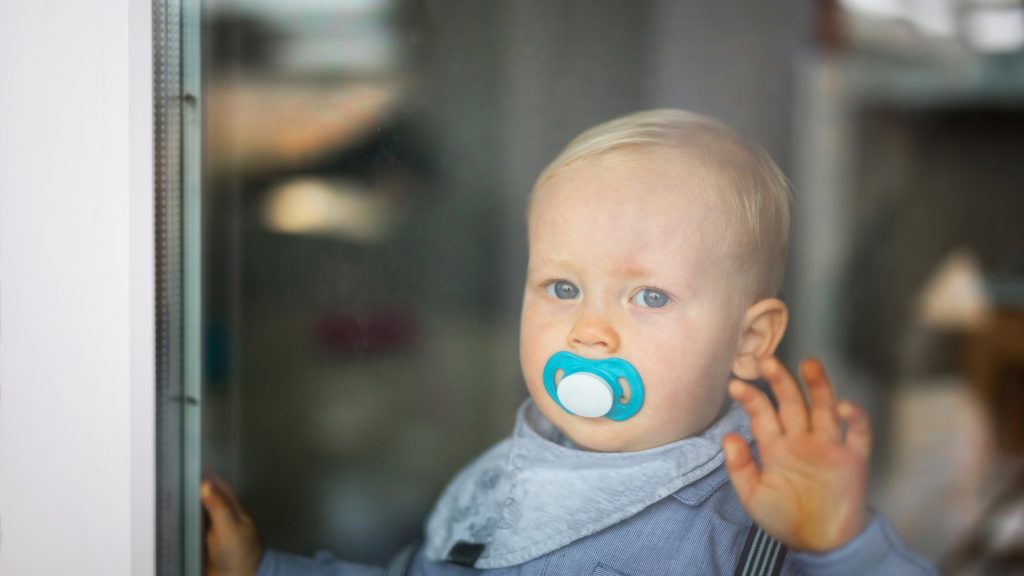Can Babies Have Separation Anxiety?

Separation anxiety is when your baby starts becoming anxious at the idea of you leaving. Symptoms of separation anxiety can be clinging to parents, extreme crying, refusing to sleep alone or frequently waking up at night, and refusing to do things that require being separated from their parents or caregivers.
At some point, almost all babies go through a period of separation anxiety because it is a state of development.
During the first few months of your baby’s life, your baby doesn’t have a concept of independence. They don’t have the intellectual development to have a preference between who is holding them. This is why it is easy to pass around young babies. However, around eight months, your baby will start distinguishing between people and forming emotional attachments to the people who care for him.
The timing of separation anxiety will be different for each child, and the intensity can vary as well. Separation anxiety can occur anywhere, including leaving your baby at daycare, a relative’s house, or even in their crib. Luckily, they usually calm down once you’ve left.
Many factors contribute to the intensity of your child’s separation anxiety, including their temperament, their exposure to other caregivers, and their mood that day. If your child has been exposed to other caregivers early on in their lives, then they tend to have an easier time with separation anxiety. Also, if your baby is tired, hungry, or sick, they may have a harder time when you leave.
Separation anxiety is a normal stage of your child’s development, so it’s not something to be alarmed about. They tend to develop separation anxiety starting around eight months, and the severity of the anxiety will depend on your baby’s temperament. Even though it is tempting to give in to your baby’s separation anxiety, canceling your plans will only make the anxiety worse.